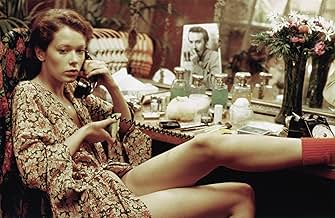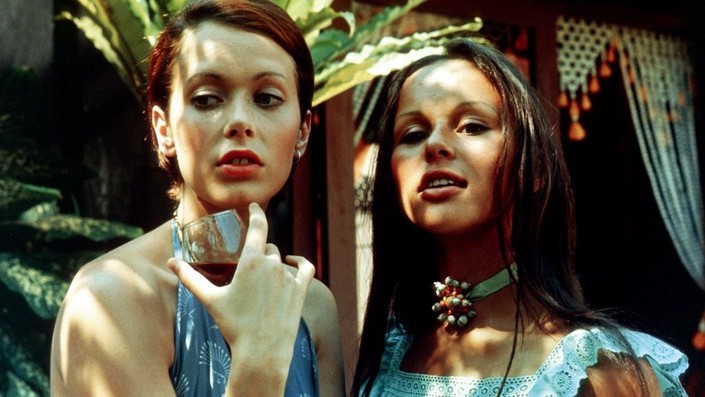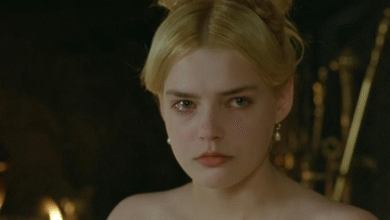Emmanuelle (1974): Desire Without Apology
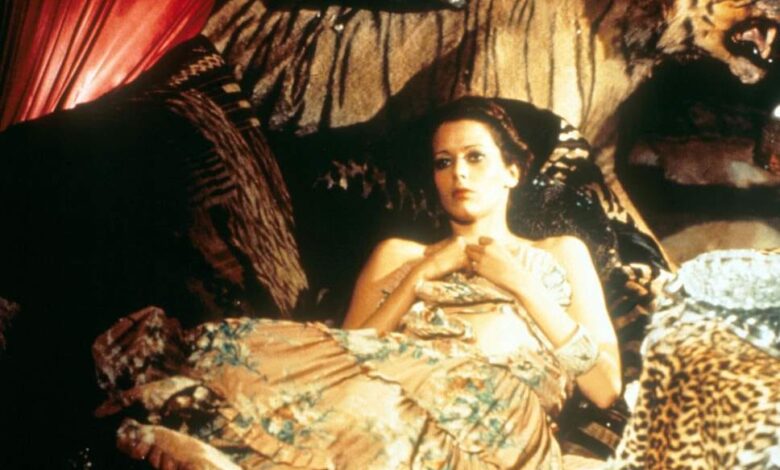
1. The Birth of an Erotic Icon
When Emmanuelle premiered in 1974, it didn’t just ignite the screen — it ignited a cultural moment. Directed by Just Jaeckin and based on the controversial novel by Emmanuelle Arsan, the film follows a young woman’s journey through sensual awakening in Bangkok, far from the polite constraints of European morality.
But this wasn’t just erotic cinema. It was aesthetic. Soft light, silk curtains, the flicker of desire shown through mirrors and smoke — Emmanuelle cloaked its sexuality in elegance, and that made all the difference. It was the kind of film you whispered about but couldn’t look away from.
2. Sylvia Kristel: Innocence Wrapped in Fire
Sylvia Kristel, then only 22, embodied Emmanuelle with a rare blend of vulnerability and agency. She was neither predator nor victim. She was curious. Open. Watching her onscreen is like watching someone discover their body and soul at the same time.
Kristel’s performance is hauntingly internal — not just skin, but thought. Her silence speaks. Her gaze asks questions we’re too afraid to say aloud. And through her, Emmanuelle becomes not about sex, but about a woman learning the edges of her own longing.
3. Eroticism or Exploitation?
This film doesn’t ask for permission. It’s unapologetic. For some, it was liberating. For others, it was softcore pornography wrapped in silk.
Yes, there are scenes of seduction, submission, and voyeurism — some of which test the boundaries of consent and taste. But beneath the surface, there is also something deeper: a woman stepping outside societal definitions of shame. There is tension between control and surrender, pleasure and autonomy.
The film doesn’t hand you a moral conclusion. It lingers, like the touch of a stranger that you didn’t expect to enjoy.
4. The Beauty and the Backlash
Emmanuelle was a box-office sensation — especially in France, where it played for over a decade at the same Paris cinema. It spawned sequels, imitators, and its own mythology.
But it was also fiercely criticized. Feminists denounced it as objectification. Conservatives attacked it as immoral. And yet, time has given it a strange kind of grace. Today, Emmanuelle is less scandalous than it is poetic — a relic of a time when cinema still dared to explore desire with slow, deliberate curiosity.
It’s not a perfect film. But it is an honest one.
5. What Remains After the Curtain Falls
Long after the eroticism fades, what lingers is the atmosphere: a woman drifting through Bangkok’s humid nights, a cigarette burning too slowly, the look in her eyes as she learns what it means to want without guilt.
Emmanuelle may not answer our questions about liberation and lust. But it reminds us that pleasure — real pleasure — is never just about the body. It’s about permission. About seeing yourself clearly, even in the dark.
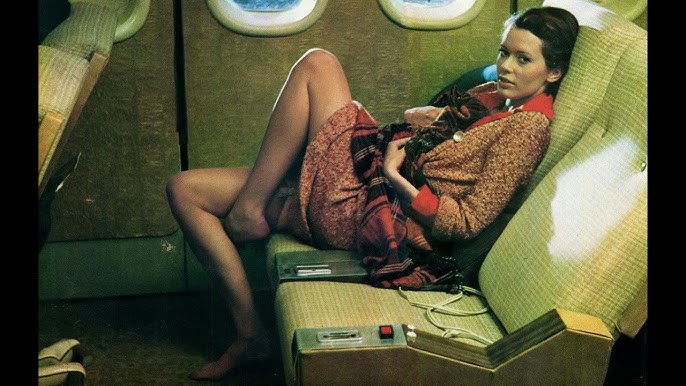
Emmanuelle is not just a film.
It is a mood. A mirror. A murmur in the spine.
It is what happens when a woman dares to want —
not quietly, not sweetly, but fully.
And in that fullness, finds a strange kind of freedom.

